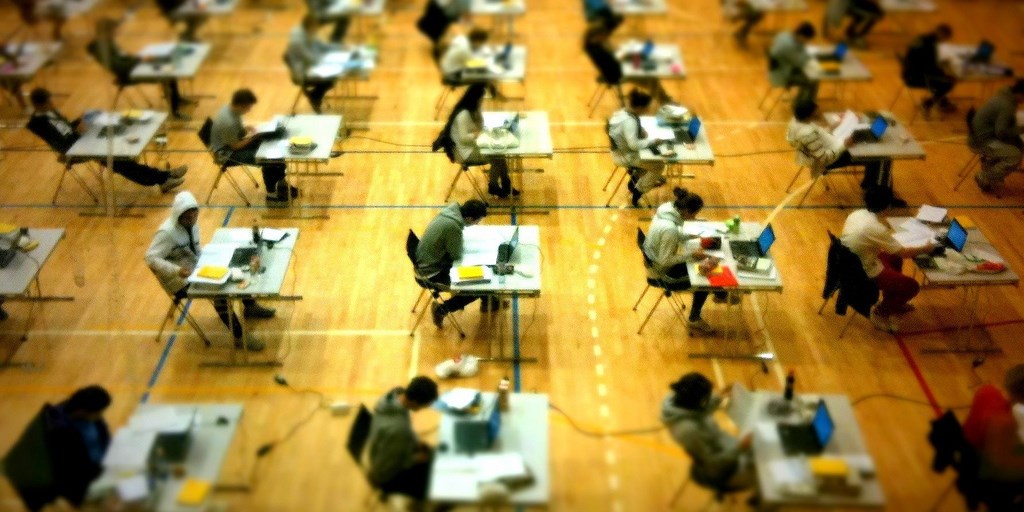What support can my SEND child receive during exams?

Are pupils with SEND at a significant disadvantage come exam time? According to DfE stats, pupils with SEND still fall behind at all stages of their education, and to a dramatic degree. To illustrate, Department of Education stats recently revealed that only 23.4% of pupils with SEND achieved five or more GCSEs at A* to C or the equivalent, compared to 70.4% of pupils with no identified SEND. So, with SATS starting today, and GCSEs already in process, is your SEND child receiving the best possible support to achieve exam success?
Who might be eligible to have special support arrangements
Pupils who receive support at School Action or School Action Plus or who have a Statement of Special Educational Needs (now EHC plans) may be eligible to have special support for tests and examinations. (N.B. A pupil who has a Statement does not automatically qualify for special arrangements)
Which tests and examinations does this cover?
- End of key stage assessments (SATs)
- Public examinations – such as GCSE, A Levels and GNVQ exams
Why is this special support available?
A pupil who receives support for class work and course work may also need special arrangements in examinations and tests. This may help to ensure that the pupil is tested fairly.
What support can be provided to access questions?
- additional time
- supervised breaks
- modification of questions (such as enlarged print, braille, etc.)
- reading of the questions (by a person or computer software)
- sign language
- amplifying of sound in aural tests
- coloured overlays and papers
- a prompter (a person who helps the pupil stay on task)
What support can be provided to assist answering questions?
- use of a typewriter or word processor
- braille
- use of specialist communication aids and voice operated software
- a transcript (copy). If the pupil is writing, typing or word-processing is likely to be difficult for
- the examiner to read a member of staff can produce a transcript (copy) for the examiner to use. These arrangements also cover braille.
- an amanuensis (scribe). This is someone who writes down, types or word processes a pupil’s dictated answers to the questions
- a practical assistant or helper to help the pupil in practical tests and make sure that the pupil is safe
If a pupil is taking the test themselves, what additional help could they receive?
- It may be possible for the pupil to take the test in a separate room, at home or in hospital.
- More time to complete the exam or the coursework may also be possible.
Exemption
It may be possible for a pupil not to take a test, if the test is part of a larger examination, and only tests one skill which is the one in which the pupil is disabled.
Disapplication
Occasionally and in exceptional circumstances, a child may not be entered for a Standard Assessment Test (SAT) or other examination. This is called disapplication. When a pupil is disapplied for SATs they are not entered for any part of the SATs. Schools may decide to disapply a pupil from the SATS tests. You should ensure that this is in the best interests of your child.
How will I know if my child needs special arrangements?
The school should discuss the possibility of any special arrangements with you well in advance. If you have any concerns discuss them with the school or the centre. You can talk to the class teacher, subject teacher, SENCo (special educational needs co-ordinator), Head of Year, Head Teacher. Try to raise this issue with them as early as possible in the school year to allow for discussions and arrangements to take place.
Who is responsible for requesting special arrangements?
End of Key Stage Assessments (SATS)
The school or centre is responsible for this at Key Stage 1. At Key Stage 2 and 3 the school or centre needs to ask for permission from the local education authority for some types of special arrangement.
Public examinations
The Head of the school or centre is responsible for requesting special arrangements from the examining body. Requests for special arrangements need to be made as early as possible in the school year.
Who should I talk to find out more about special arrangements?
The class teacher or subject teacher, the SENCO or Head of Year, the Head or Principal of the school or centre should be able to answer your questions and/or give further information about where you can get help.
Who do I talk to if I have asked about special arrangements and nothing has happened?
- the school or centre: appropriate staff, the head or principal, the governors
- the Parent Partnership Service
- the LEA
The information for this article has been taken from a fact sheet provided by the parent partnership service. The education sector moves on quickly and this information may become outdated. For the most up to date advice, it is recommended that you contact the Parent Partnership Service in your area.
Are you looking for SEND staff or work?
If you're looking for a SEND teaching or support job in England or Wales, why not register with Axcis, the SEND recruitment specialists? Or perhaps you need to recruit staff for your school or provision? If so, why not take a look at the Axcis Website, or get in touch today to find out how we can help?
